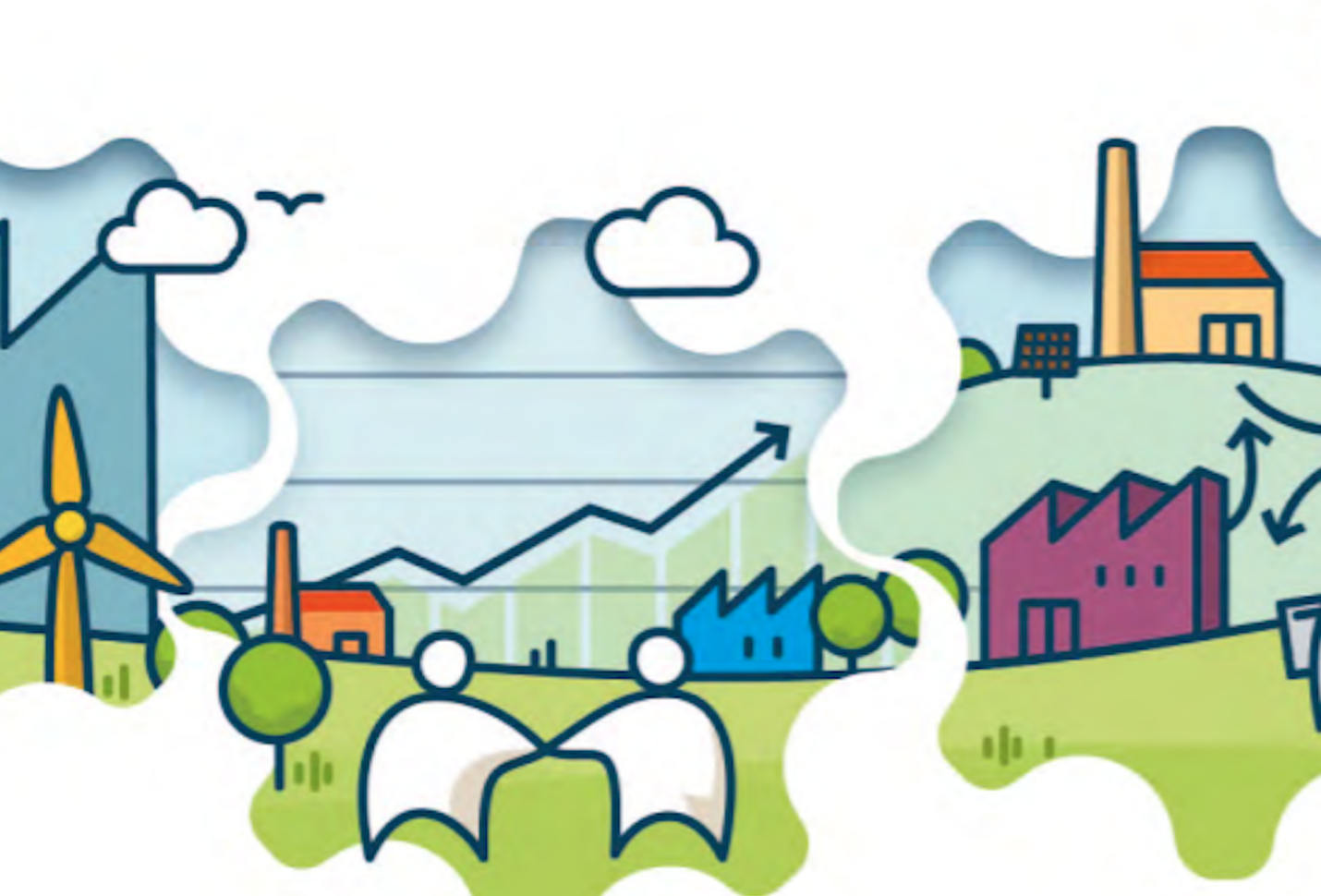
C3S: July 22 hottest day in recent history
July 22 was the hottest day on earth in recent history, according to the Copernicus ...

The first phase of the Global Eco-Industrial Park Program (GEIPP) – which ran in Colombia, Egypt, Indonesia, Peru, South Africa, Ukraine and Viet Nam between 2018 and 2023 – managed to save over 57 million kilowatt-hours of energy, over two million cubic meters of water and nearly 18,000 metric tons of materials.
The program was implemented by United Nations Industrial Development Organization (UNIDO) and funded by the Swiss State Secretariat of Economic Affairs (SECO).
The project – whose total budget of the project in Egypt stood at 1,672,536 euros – was implemented by UNIDO in partnership with the Ministry of Trade and Industry (MoTI), Suez Canal Economic Zone (ScZone), Industrial Development Authority (IDA), General Authority for Investment and Free Zones (GAFI).
The Industrial parks targeted for demonstration in Egypt were Robbiki Leather City in Cairo, Orascom Industrial Parks – Sokhna Complex, in Suez, Polaris Industrial Park in Giza. Duration: 3 years (2022-2024).
The project’s objective is ”To demonstrate the viability and benefits of EIP approaches in scaling up resource productivity and improving economic, environmental and social performances of businesses and thereby contribute to inclusive and sustainable industrial development in Egypt. The specific expected outcome of the country level intervention in Egypt is the improved environmental, economic and social performance of industries in Egypt through the implementation of EIP approaches in selected pilot industrial parks and an increased role of EIPs in environmental, industrial and other relevant policies at the national level.”
The eco-industrial parks (EIP) are managed industrial areas that promote cross-industry and community collaboration for common benefits related to economic, social and environmental performance. The concept involves interrelated aspects, including resource efficient and cleaner production, industrial symbiosis, reductions in emissions and pollution, social standards, shared infrastructure and improved management of risks.
UNIDO provides a range of services to help the countries participating in the GEIPP to establish eco-industrial parks and/or transform existing industrial zones. These services include identifying EIP activities which are most suitable and most effective, raising awareness among key stakeholder groups of the benefits of EIPs, providing policy support to translate the EIP concept into national policies, developing and advising on park management, and providing technical support to upscale resource efficiency and industrial symbiosis.
Speaking at a ceremony at the UNIDO headquarters in Vienna marking the conclusion of the first phase of the GEIPP by the end of December 2023, Heinz Leuenberger, an expert in natural resource efficiency and cleaner industrial production, and Professor at the University of Applied Sciences and Arts, Northwestern Switzerland, said, “Eco-industrial parks are a key approach to achieve a higher resource efficiency and better social and economic performance in manufacturing industry.”
Leuenberger emphasized the pivotal role that eco-industrial parks play in promoting inclusive and sustainable industrial development and a circular economy.
UNIDO project manager, Christian Susan explained that bringing different industries into closer proximity in eco-industrial parks allow companies in the parks to exchange raw materials, energy source, by-products and waste. “This collaborative effort – industrial symbiosis – enables companies to gain a competitive advantage and reduce waste and emissions.”
Susan highlighted an example of industrial symbiosis at one of the DEEP C Industrial Zones in Viet Nam where glass grinding powder was identified as a filling material for road construction. When discarded in landfills, glass waste is problematic due to its non-decomposable nature, and thus, by encouraging the reuse of glass grinding powder, waste can be minimized. The result is an annual saving of 3,000 metric tons of waste.
An example of resource efficiency is the Amata Industrial Park, Dong Nai, Viet Nam, one of five pilot industrial parks in the country transitioning to become an eco-industrial park. UNIDO experts have provided technical assistance to the park management and to manufacturing companies inside the park, and have identified 12 opportunities for resource efficient and cleaner production. Six of them have already been implemented, bringing economic and environmental benefits to the companies and the park.
Another example of the impact of the GEIPP is in Ukraine where the UNIDO project has been working with the Ministry of Economy of Ukraine to mainstream eco-industrial parks into national policy. An EIP policy working group was established by the Ministry to review and amend current legislation.
On March 14 2023, the government adopted a decree that addresses the eco-industrial park concept implementation by amending the related laws as one of the priority actions for Ukraine by 2023.
To unleash the potential of Eco-Industrial Park concepts and practices, UNIDO has developed a set of EIP tools, guides and online training courses for industrial parks and policymakers. By using the tools parks and countries can advance the transformation of industrial parks and zones towards EIPs.
July 22 was the hottest day on earth in recent history, according to the Copernicus ...
Google has engaged in partnership with DHL to utilize the DHL Express GoGreen Plus service ...
Mars has announced registering a record 8% greenhouse gas (GHG) emissions reduction against its 2015 ...


اترك تعليقا